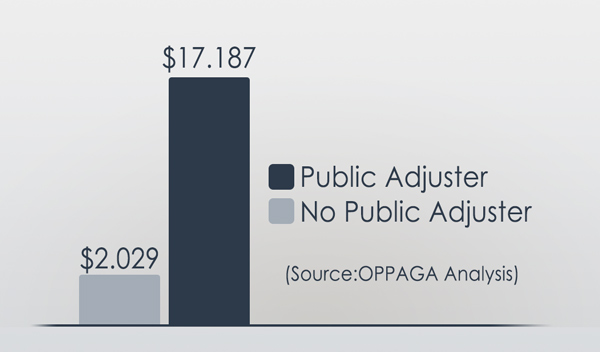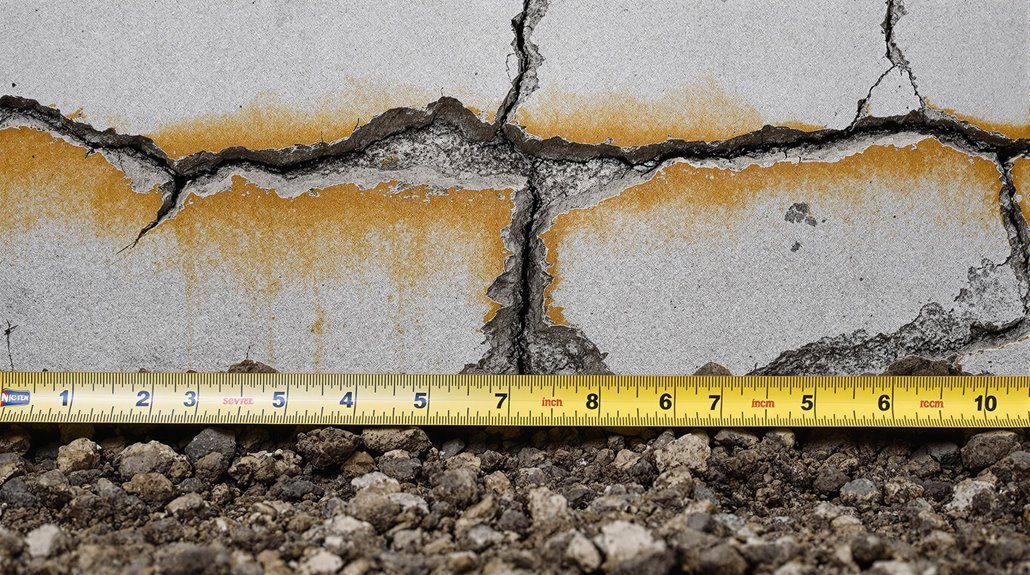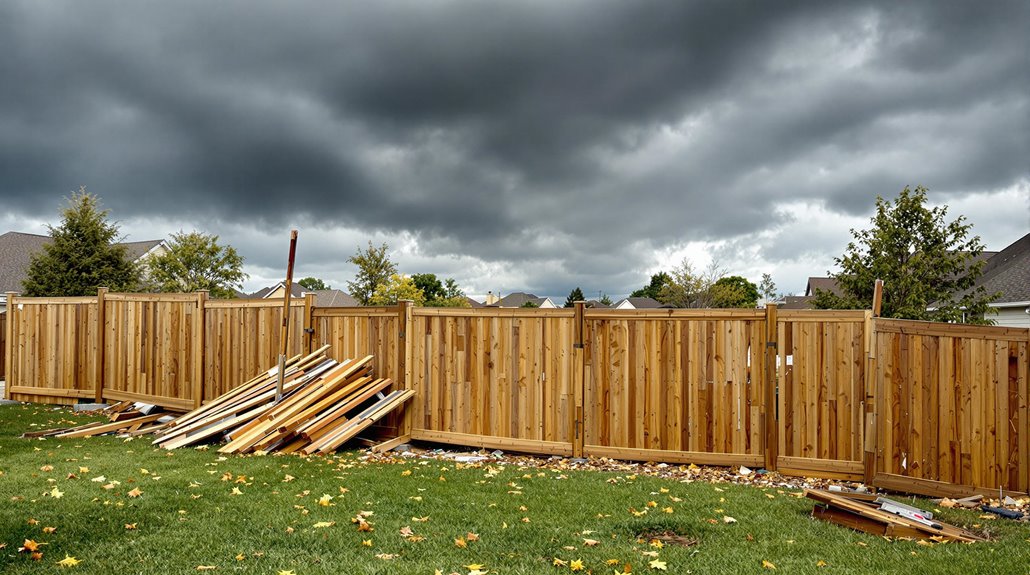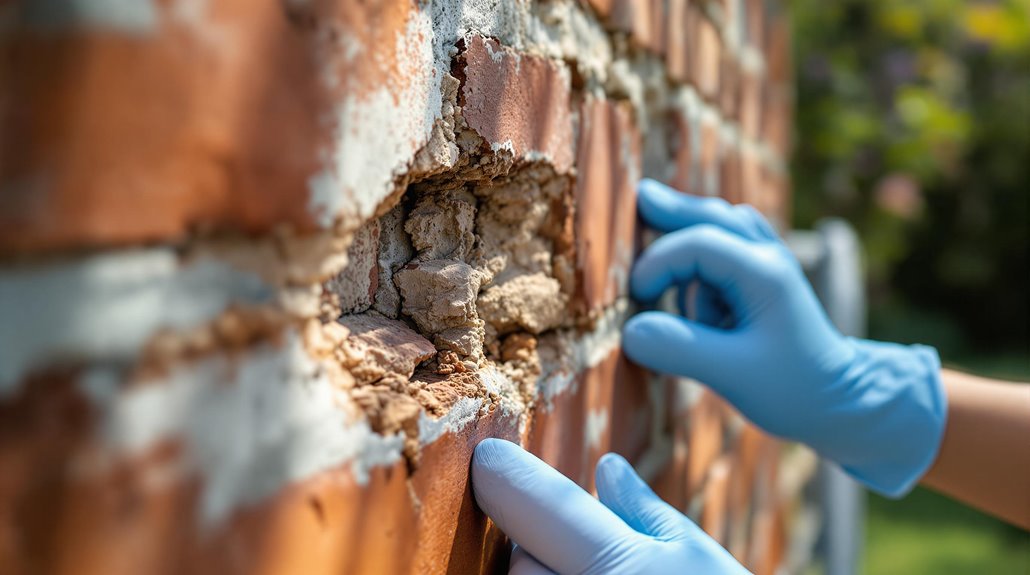Work With Trusted & Experienced
Public Adjusters In Philadelphia, Pennsylvania That Work For YOU!
100% Contingency Based. We Don't Get Paid Unless YOU Get Paid!
*Not All Services Available In All Areas.
Don't Settle For Less!
Get The HIGHEST & Most FAIR Settlement Amount, That You Are Legally Entitled To, From Your Insurance Claim!
Get a free on-site inspection & insurance policy evaluation from one of our expert public claims adjusters!
Work with highly trained & verified Philadelphia public adjusters who are state-licensed, bonded, and trained to handle all residential or commercial insurance claims, big or small!
Public Claims Adjusters Network (PCAN) member public insurance claims adjusters in Philadelphia, Pennsylvania offer technical and detailed expertise that has satisfied countless homeowners, business owners, condominium associations, property management companies, and HOAs.
Our network members have years of experience dealing with insurance companies. Many of our network’s public adjusters also have previous backgrounds in construction and/or insurance, giving them a significant advantage in quickly securing the highest claim settlement compensation for their clients.
They know what to look for, what repairs actually cost, and what the insurance company’s adjusters tend to ignore (and hope you don’t know about!).
Consultations are always:
- Friendly
- Free
- No-Obligation
- 100% contingency-based In Nearly Every State
… meaning your public adjuster doesn’t get paid, unless you get paid!*
Public Claims Adjusters Network (PCAN) public adjusters take pride in providing superior customer service, and clear & friendly communication. Please fill out our contact form to schedule a no-obligation consultation with one of our network’s licensed & verified Pennsylvania public insurance claims adjusters today!
*Some Services Not Available In All Areas. Contingency Fee Not Permitted By Law In Lousianna. By law, services in Kansas are only available for commercial claims.
Request Your No-Obligation Consultation With a PCAN-Verified Member Public Adjuster Today!
- Required Fields
*Some Services May Not Be Available In All Areas. Public Claims Adjusters Network (PCAN) is not a Public Adjusting Agency. PCAN is a private network of stringently vetted, state-licensed, bonded, and PCAN Verified Public Adjusters with members Nationwide. Your contact request will be matched to one of our verified member public adjusters serving the Philadelphia community, to ensure the highest quality of service & care.
Higher Claim Payouts When Using A Public Adjuster According To Landmark OPPAGA Study!
Contingency Based. We don’t get paid, unless you get paid!
*Contingency fees not permitted by law in Louisiana.


Why Hire A Public Claims Adjuster In Philadelphia Pennsylvania?
Philadelphia Public Adjusters Help Get You The HIGHEST & Most Fair Settlement Amount (That You Are Legally Entitled To) From Your Homeowners, Roofing, Condo & HOA, & Business Insurance Claims!
Get a Free On-Site Inspection & Insurance Policy Evaluation From One Of Our Expert public claims adjusters Members Today!
- Save You Time & Help Speed Up The Claim Process
- Help Alleviate Stress & Walk You Through The Whole Process
- Negotiate With The Insurance Company & Make Sure You Get The Highest Settlement Possible*
- Prepare & File All The Necessary Documents, And Handle All The Necessary Follow-up's
*Some Services Not Available In All Areas.

What Our Network Of Licensed Philadelphia Public Insurance Adjusters Bring To The Table
Insurance Policy & Claims Specialists For Philadelphia Residents
PCAN member public insurance claims adjusters have years of experience in claims & reviewing coverages. As such, they understand the numerous types of policies and endorsements you may experience when dealing with your claim in Philadelphia, Pennsylvania. Their expertise allows them to find & utalize the various coverages your policy may have, and in many cases, inform you of coverage & clauses you may not even know about.
Advocates For Homeowners, Businesses, & HOA's In Philadelphia, Pennsylvania
PCAN member public insurance adjusters advocate for your rights as the policy holder. They ensure that the clients’ rights are being protected throughout the claims process, and make sure you get all the benefits you are entitled to based on your policy. Public adjusters are there with you every step of the way!
Experts In Seen & Unseen Damages For Philadelphia Homeowners Insurance Claims
PCAN member public claims adjusters in Philadelphia, Pennsylvania have years of experience identifying damage, and in most cases, come from professional construction, roofing, and insurance backgrounds. As such, they are able to find & isolate damages that you may not even know to look for, or know would/should be covered by your policy! They also incorporate the latest assessment techniques & technology when conducting their property inspections.
Expert Philadelphia Damage Claim Negotiators
Settlement negotiation is critically important when it comes to the claims process. Public adjusters in Philadelphia, Pennsylvania know how the insurance companies think, and come to the negotiation table fully prepared to defend & enforce your rights. PCAN member public claims adjusters have the expertise and experience in claims negotiations to ensure that you get what you are actually entitled to under your policy ... not what the insurance company tells you that you are, based on their own interests. When the insurance company plays hardball or puts up a fight, your public adjuster won't be afraid to get in that ring and fight them for what's rightfully yours!
Our Expert Public Adjusters Work Exclusively For You To Ensure You Get The Highest Settlement Possible From Your Property Insurance Claim After A Disaster.
Frequently Asked Questions (FAQ) About Philadelphia Pennsylvania Public Adjusting
What Is A Public Claims Adjuster In Philadelphia & What Do They Do?
Philadelphia Public adjusters are licensed insurance professionals who work independently to defend policy holders throughout the insurance claims process. According to the National Association of Public Insurance Adjusters (NAPIA) the professionals serve as advocates for homeowners, ensuring their interests are protected in dealing with insurance companies.
The function of public adjusters has become more important over the last few years, particularly since insurance claims become more complex. A landmark study conducted by the Office of Program Policy Analysis and Government Accountability (OPPAGA) found that policyholders who used public adjusters received settlements up to 800% higher than those who dealt with claims themselves.
Public adjusters provide comprehensive services throughout the claim process. They conduct detailed damage assessments, and prepare and file the necessary documentation, and manage all communications with insurance companies. This professional support significantly reduces the time and stress associated with filing claims and allows policyholders owners to focus on rehabilitating.
Based mostly on a contingency fee basis which typically range between 10 and 20% of the final settlement, public adjusters are incentivized to secure the most amount of compensation for their clients. The fee structure varies according to the complexity of the claim, state regulations, and the resources required.
They have vast expertise of insurance policies, as well as building codes, and costs for construction. They apply this knowledge to:
- Accelerate the claims process
- Document and assess damages thoroughly
- Navigate complex policy language
- Directly negotiate with insurance companies
- Be sure to comply with filing deadlines and other policy requirements
Research has clearly shown that professional representation during the claims process typically results in more comprehensive settlements and quicker resolution of claims. Public adjusters’ understanding of insurance regulations and industry practices can prevent common pitfalls that could otherwise delay or diminish claim settlements.
Related Story: Are Public Adjusters Worth It?
Disclaimer: *Some Services Not Available In All Areas. Contingency fees are not accepted in Louisiana.
Will My Settlement Be Larger If I Hire A Philadelphia Public Adjusting Company?
Research and analysis has shown that employing a public insurance adjuster can substantially increase policyholder settlements for claims. According to a landmark study conducted by the Office of Program Policy Analysis and Government Accountability (OPPAGA), policyholders who used public adjusters received settlements as high as 800% higher than those who dealt with claims themselves.
Public adjusters in Philadelphia, Pennsylvania serve as licensed professionals who exclusively represent policyholders during the claims process. The National Association of Public Insurance Adjusters (NAPIA) reports that these state-licensed professionals offer comprehensive claims management services, including precise property damage documentation and interpretation of policies and settlement negotiations with insurance companies.
The value of representation by a professional is particularly evident in final settlement figures, as professionally managed claims typically yield more comprehensive damage assessment, and more accurate estimates of losses.
Public adjusters streamline the claims process by:
- Managing all documentation and correspondence with insurance companies
- Conducting thorough assessments of property damage
- Preparing comprehensive claim submissions
- Negotiating directly with insurance companies
- Speeding up the settlement timeline
- Ensures compliance with policy requirements and deadlines
Most public adjusters operate on a contingency fee basis, that typically range between 10 and 20% of the final settlement amount. The fee structure is aligned with the adjuster’s interests with the interests of the policyholder, since their compensation is contingent on securing a favorable settlement outcome.
A Public adjuster’s expertise often proves valuable in difficult claims situations, where the knowledge of building codes, construction costs, & insurance policy provisions can have a significant impact on settlement outcomes.
Their expert oversight ensure no damaged claims are missed and claims are properly valued in accordance with current market conditions.
Related Story: When Should I Hire A Public Insurance Adjuster?
Disclaimer: *Some Services Not Available In All Areas. Contingency fees are not permitted in Louisiana.
How Much Do Philadelphia Public Adjusters Near Me Charge?
Public adjusters typically operate on a contingency fee basis, charging between 10% to 20% of the final insurance claim settlement. According to the National Association of Public Insurance Adjusters (NAPIA), these fees vary based on claim complexity, state regulations, and required resources. The contingency fee structure ensures that public adjusters’ interests align directly with those of their clients, as their compensation depends on securing favorable settlements.
Before engagement, policyholders should carefully review fee arrangements and contract terms, ensuring clear understanding of the service agreement. According to the Insurance Information Institute (III), public adjusters must maintain state licenses and adhere to strict professional standards, providing an additional layer of consumer protection. Their role becomes particularly valuable in complex claims where specialized knowledge can significantly impact settlement outcomes.
A landmark study by the Office of Program Policy Analysis and Government Accountability (OPPAGA) demonstrated that policyholders who engaged public adjusters received settlements up to 800% higher than those who handled claims independently. This significant difference underscores the value these professionals bring to the claims process.
Related Story:How Does A Public Insurance Adjuster Work?
Disclaimer: *Some Services Not Available In All Areas. Contingency fees not allowed in Louisiana.
When Should You Hire A Public Claims Adjuster In Philadelphia, Pennsylvania?
Complex insurance claims often require professional expertise to effectively navigate. Public insurance adjusters, state-licensed professionals who solely work for policyholders, can significantly impact claim outcomes and settlement amount.
There are a variety of scenarios that require the use of a public adjuster:
- Extensive property damage
- Claims involving multiple types of coverage
- Disputed claims or partial claim denials
- Complex requirements for documentation
- Situations that are time-sensitive which require immediate attention
Public adjusters streamline the claims process by:
- Conducting extensive damage assessments
- The preparation and filing of necessary documentation
- Managing communication with insurance companies
- Settlement negotiations on behalf of the policyholders
- Ensuring compliance with policy terms and deadlines
Public adjusters particularly benefit policyholders because of:
- Reducing stress through expert claim management
- Speeding up the settlement process
- Offering an objective assessment of damage
- Ensuring comprehensive documentation
- Leveraging industry expertise for fair settlements
Related Story:Are Public Claims Adjusters Legitimate?
Disclaimer: *Some Services Not Available In All Areas. Contingency fees are not accepted in Louisiana.
When Is It Too Late To Hire A Public Adjuster Near Me In Philadelphia?
Navigating the insurance claims process requires careful timing and professional expertise. Understanding when to engage a Pennsylvania public adjuster can significantly impact claim outcomes and settlement amounts. According to the National Association of Public Insurance Adjusters (NAPIA), policyholders can benefit from hiring a public adjuster at any point during an active claim, though earlier engagement typically yields better results.
Key timing considerations include:
Statute of Limitations:
- Each state maintains different deadlines for filing insurance claims
- Claims must be initiated within these legal timeframes
- Public adjusters can assist with existing claims, even if initially filed independently
Documentation Requirements:
- Public adjusters help organize and prepare comprehensive claim documentation
- They can recover or reconstruct missing documentation
- Professional documentation improves claim validity and settlement potential
Claim Status:
- Active claims benefit from professional representation
- Denied claims may be reopened with proper documentation
- Disputed settlements can be renegotiated
Public adjusters provide valuable services throughout the claims process Including:
- Expedited claim processing through professional management
- Expert negotiation with insurance carriers
- Complete documentation preparation and submission
- Regular communication with insurance companies
- Stress reduction through professional claim handling
- Maximum settlement potential through experienced representation
Related Story:Common Public Adjuster Pitfalls & How To Avoid Them
Disclaimer: *Some Services Not Available In All Areas. Contingency fees are not permitted in Louisiana.
Why hire a Public Adjuster In Philadelphia if your insurance company already sent an adjuster?
The decision to employ a state-licensed public insurance claims adjuster, even if an insurance company has assigned its own adjuster, could greatly affect the final result of an insurance claim.
While insurance company adjusters work for the insurance company’s interests … public claims adjusters In Philadelphia, Pennsylvania serve as dedicated advocates for policyholders. The National Association of Public Insurance Adjusters (NAPIA) highlights that these state-licensed & regulated adjusters operate independently, ensuring fair claim settlements and comprehensive coverage interpretation.
Public adjusters streamline the claims process by coordinating documentation, conducting complete assessment of the damage, and coordinating all communications with insurance companies. This professional intervention typically speeds up claim resolution and reduces homeowners administrative burdens.
The benefit of public adjusters also extends beyond monetary benefits. These professionals provide professional guidance through the entire claims process, guiding clients through complex policy terms and ensuring every damage is properly documented and valued.
They prepare detailed damage estimates, gather the necessary evidence, and deal directly with insurance carriers for the highest settlement outcome.
The process of settling insurance claims is complicated and time-consuming which makes professional representation crucial during large loss events. Public adjusters’ expertise in negotiation and policy interpretation often results in more extensive settlements that take into account evident and concealed damages.
Disclaimer: *Some Services Not Available In All Areas. Contingency fees not allowed in Louisiana.
Related Story:How Do Public Insurance Adjusters Get Paid And Who Pays Them?
Disclaimer: *Some Services Not Available In All Areas. Contingency fees are not accepted in Louisiana.
Can I File My Insurance Claim Myself In Philadelphia, Pennsylvania?
While policyholders are entitled to file insurance claims on their own, research from industry experts suggests this strategy may not provide the best results.
Key challenges of self-filing include:
- Complex documentation requirements and policy interpretation
- Time-intensive communication with insurance representatives
- Risk of overlooking covered damages or benefits
- Potential undervaluation of claims by insurance companies
- Limited-to-zero negotiation experience with insurers
Licensed public adjusters have substantial advantages during the process of settling claims:
-
- Professional Documentation and Assessment – Public adjusters thoroughly document damages, prepare comprehensive claim files, and handle all necessary paperwork, making sure nothing is overlooked.
- Time and Stress Management – These professionals manage all communication with insurance companies and homeowners can concentrate on recovery while speeding the process of filing claims.
- Expert Negotiation – With a vast understanding of regulations and rules governing insurance policies, public adjusters deal directly with insurance companies to negotiate fair settlements.
- Cost-Effective Service – Public adjusters typically work on a contingency-fee basis, usually ranging between 10-20% of the settlement amount, to ensure the best interests of the policyholder.
The National Association of State Insurance Commissioners (NAIC) recognizes public adjusters as licensed professionals who represent the interests of policyholders throughout the process of settling claims. Their expertise can be particularly beneficial in complex claims or when significant damages are involved.
Statistics from the industry indicate that expert representation by state-licensed public claims adjusters leads to more favorable results for the policyholders, with faster processing time, and more complete settlement packages.
Related Story:Public Insurance Adjuster Fees
Disclaimer: *Some Services Not Available In All Areas. Contingency fees are not accepted in Louisiana.
In Philadelphia, Can My Contractor Represent Me Against My Insurance Company?
While many contractors offer to negotiate with insurers, this strategy can have serious risks and restrictions. According to the National Association of Insurance Commissioners (NAIC), contractors do not have the legal authority and expertise to act as official representatives for insurance claims negotiations.
This restriction could dramatically affect the result of a claim and potentially limit any rights granted to the owner of the policy.
State insurance departments oversee licensed public adjusters, who undergo highly specialized training, have to pass Federal background checks, & require specialized licenses from the state to operate. They also have the legal authority to act on behalf of the policyholder in order to protect and enforce their rights … legal authority that contractors don’t possess … making them the legal alternative to contractor representation.
Public Adjusters specialize in the interpretation of insurance policies, assessing damages, and working with insurance companies to guarantee equitable settlements.
Public adjusters provide several distinct advantages, such as:
- Expert claim documentation and filing
- Professional negotiation with insurance carriers
- Comprehensive damage assessment
- Accelerated claim processing
- Stress reduction by a complete claim management
The National Association of Public Insurance Adjusters (NAPIA) insists on the fact that public claims adjusters must maintain professional licenses and follow strict ethical standards. This provides the additional level of consumer protection that is not offered by the representation of contractors.
For claims that are complex for complex claims, adjusters have a wealth of knowledge in interpreting policies, document demands and negotiation techniques often is invaluable, and can help avoid costly mistakes and claims denials which could result from contractor-led negotiations.
Related Story:When Is It Too Late To Consult With A Public Insurance Claims Adjuster?
Disclaimer: *Some Services Not Available In All Areas. Contingency fees are not permitted in Louisiana.
I Already Settled My Claim, But It Wasn’t Enough Money To Cover The Damages. Is It Too Late To Try To Get More Money?
If insurance settlements are not sufficient to compensate for damages to property, policyholders retain several legal options to seek additional compensation, even following the initial settlement of claim.
As per the National Association of Insurance Commissioners (NAIC), the policyholders must carefully evaluate their settlement terms and related documentation before accepting the final settlement.
The timing and the circumstances for seeking additional compensation are crucial factors, as most insurance policies include specific timeframes for claim disputes as well as appeals, typically ranging from one to two years after settlement date.
Licensed public insurance adjusters are essential in re-evaluating settlement claims and finding previously missed damages. Public adjusters carry out thorough assessments of property damages, document any additional damage, and deal with insurance companies in the interest of policyholders.
The most important steps to pursue additional compensation are:
- Document newly discovered damages
- Review of policy terms and settlement agreements
- Gather additional evidence and estimates
- Request professional representation from a state-licensed public insurance adjusters
The National Association of Public Insurance Adjusters (NAPIA) insists that public adjusters are often able to identify missed damages and policy provisions that allow for additional compensation. Their knowledge of policy interpretation and claim valuation is especially valuable in defending claims that have already been settled.
Insurance policyholders must take action immediately upon discovering insufficient settlement amounts, as delay could hinder their ability to obtain additional compensation. When utilizing a Public Claims Adjusters Network (PCAN) member Public Insurance Adjuster, the claim review and negotiation process typically progresses more efficiently than policyholder-directed efforts.
Disclaimer: *Some Services Not Available In All Areas. The use of contingency fees is not permitted in Louisiana.
Can My Insurance Company Cancel My Contract If I Use a Public Adjuster In Philadelphia, Pennsylvania?
No. Insurance companies cannot legally cancel policies solely because policyholders hire public adjusters to represent their interests during the claims process, according to the National Association of Insurance Commissioners (NAIC). Policy cancellations are strictly governed by contractual terms and state regulations, typically limited to specific circumstances such as non-payment of premiums or material misrepresentation.
The National Association of Public Insurance Adjusters (NAPIA) emphasizes that hiring a licensed public claims adjusters is a protected right of policyholders. These professionals serve as advocates during insurance claims, handling documentation, negotiations, and communications with insurance carriers to expedite settlements.
The Insurance Information Institute (III) confirms that policyholders maintain the right to professional representation during claims processes, and insurers must honor this right while adhering to fair claims handling practices.
Related:Public Insurance Adjusting Guides
Disclaimer: *Some Services Not Available In All Areas. Contingency fees are not accepted in Louisiana.
Our Expert Public Adjusters Work Exclusively For You To Ensure You Get The Highest Settlement Possible From Your Property Insurance Claim After A Disaster.
The Homeowners Insurance Claims Recovery Process In Philadelphia, Pennsylvania
Pennsylvania state-licensed public adjusters are fluent in “Insurance Policy Jargon”, and will guide you through the entire property insurance claims process, while they fight to make sure you get the highest & most fair compensation possible for your claim!
View 7-Step Claims Recovery Process Map
Step #1
Make Sure Your Family Is Safe
When disaster strikes, the priority is to make sure your family is safe. Always have an emergency bag!
Step #2
Contact A PCAN Public Adjuster In Philadelphia, Pennsylvania
Contact one of the PCAN verified and state-licensed public insurance claims adjusters to schedule an appointment for them to come out & meet with you to inspect the damage.
Step #3
Thorough Review Of Your Policy
Your public adjuster will conduct a comprehensive review of your policy, note any coverage restrictions, coinsurance requirements, limitations, and review additional options that may be available to you.
Step #4
Create A Claims Strategy That Works For Your Specific Goals & Needs
Your public insurance adjuster will discuss what is most important to you when it comes to your claim, then create & tailor the right claims strategy to take care of your family.
Step #5
Public Adjuster Takes Care Of All Insurance Related Paperwork, Negotiations, & Follow Up.
Once you have agreed on a strategy, your public insurance claims adjuster will:
- Meet with insurance company adjusters & personnel at the loss/damage location.
- Agree to the scope of damages & make sure that they are including all the damages in the scope, as well as clearly deciding on what should be repaired vs. replaced.
- Prepare a detailed reconstruction estimate.
- Prepare a detailed inventory of personal property.
Step #6
Negotiations & Final Settlement
Your public insurance adjuster will work to make sure you receive the highest settlement possible under your specific insurance policy.
Step #7
Restoration | Reconstruction | Relocation
Your public claims adjuster will negotiate with the insurance company to ensure that you can achieve your specific goals. Whether that’s full or partial restoration, rebuilding your property, or a full-relocation.
(Click To Expand Infographic)
Our Expert Public Adjusters Work Exclusively For You To Ensure You Get The Highest Settlement Possible From Your Property Insurance Claim After A Disaster.
Explore How Philadelphia Public Claims Adjusters Can Help You Maximize Settlements From These Types Of Home Insurance Damage Claims
- Water Property Damage Insurance Claims Public Adjusters
- Hurricane Claims Adjusters
- Flood Property Damage Claims Public Adjusters
- Hail Damage Insurance Claims Public Adjusters
- Sewer Line Damage Insurance Claims Public Adjusters
- Flooded Basement Property Damage Insurance Claims Public Adjusters
- Sinkhole Damage Claims Public Adjusters
- Slab Leak Damage Insurance Claims Adjusters
- Foundation Damage Claims Public Adjusters
- Water Line & Pipe Damage Claims Public Adjusters
- Fire Property Damage Claims Public Adjusters
- Wildfire Property Damage Insurance Claims Public Adjusters
- Denied Homeowners Property Damage Insurance Claims
- Underpaid Homeowners Property Damage Insurance Claims
- New Property Damage Claims
- Commercial Property Damage Claims
- Homeowners Association (HOA) Property Damage Insurance Claims
- Condo Association Property Damage Claims Adjusters
- Theft Claims Adjusters
- Vandalism Property Damage Insurance Claims Public Adjusters
- Roof Claims Public Adjusters
- Storm & Wind Damage Claims Public Adjusters
- Tornado Damage Insurance Claims Public Adjusters
- Property Damage Claims Public Adjusters
- Personal Property Claims
- Earthquake Property Damage Claims
- Structural Damage Claims Public Adjusters
- Lightning Claims Public Adjusters
- Mold Damage Insurance Claims
- Business Interruption Claims Adjusters
Our Expert Public Adjusters Work Exclusively For You To Ensure You Get The Highest Settlement Possible From Your Property Insurance Claim After A Disaster.
Read The Latest Articles Related To Your Specific Claim
- Featured
- Adjusting
- Basement
- Black Mold
- Business Interruption
- CA
- Ceiling Damage
- Commercial Property Damage
- Condo Association
- Contractors
- Denied Insurance Claims
- Earthquake Damage
- Fire Damage
- Flood Damage
- Foundation Damage
- Hail
- Hail Damage
- Homeowners Association
- Homeowners Insurance
- Hurricane
- Hurricane Damage
- Inspections
- Installation
- Insurance
- Insurance FAQ
- Lightning
- Mitigation
- Mold Damage
- New Claims
- Personal Property Damage
- Property Damage
- Public Adjusting Guides
- Remediation
- Repairs
- Replacement
- Roof Damage
- Roof Leaks
- Sewer Lines
- Sinkhole Damage
- Slab Leak
- Solar Panels
- Storm Damage
- Storms
- Structural Damage
- terms
- Theft
- Tornado
- Tornado Damage
- TX
- Underpaid Insurance Claims
- Vandalism
- Water Damage
- Water Lines And Pipes
- Wildfire Damage
- Wind
- Wind
- Featured
- Adjusting
- Basement
- Black Mold
- Business Interruption
- CA
- Ceiling Damage
- Commercial Property Damage
- Condo Association
- Contractors
- Denied Insurance Claims
- Earthquake Damage
- Fire Damage
- Flood Damage
- Foundation Damage
- Hail
- Hail Damage
- Homeowners Association
- Homeowners Insurance
- Hurricane
- Hurricane Damage
- Inspections
- Installation
- Insurance
- Insurance FAQ
- Lightning
- Mitigation
- Mold Damage
- New Claims
- Personal Property Damage
- Property Damage
- Public Adjusting Guides
- Remediation
- Repairs
- Replacement
- Roof Damage
- Roof Leaks
- Sewer Lines
- Sinkhole Damage
- Slab Leak
- Solar Panels
- Storm Damage
- Storms
- Structural Damage
- terms
- Theft
- Tornado
- Tornado Damage
- TX
- Underpaid Insurance Claims
- Vandalism
- Water Damage
- Water Lines And Pipes
- Wildfire Damage
- Wind
- Wind
A homeowners insurance terms glossary provides insight to policyholders of critical terms and definitions commonly used to clarify various aspects of coverage and claims.
Key concepts include such terms as Actual Cash Value Vs. Replacement Value, a method for determining compensation based on replacement costs minus recoverable depreciation, and ALE (Additional Living Expenses), which cover necessary living costs when a home is uninhabitable.
For example, understanding your home insurance policy declaration page, common insurance claim deductibles for various kinds of home & property damage, the general policy exclusions standard in many home insurance policies, can bring much-needed awareness & clarity to policyholders of potential insurance definitions & terms that may affect their claim outcomes. For example, knowing which key documents (such as photographs and receipts) are essential for substantiating claims.
Related Articles:
Our Expert Public Adjusters Work Exclusively For You To Ensure You Get The Highest Settlement Possible From Your Property Insurance Claim After A Disaster.
Find PCAN Public Adjusters In These Surrounding Cities:
View Additional Cities Around Philadelphia That We Serve
- Public Claims Adjusters Center City, Pennsylvania
- Public Claims Adjusters South Philadelphia, Pennsylvania
- Public Claims Adjusters Upper Darby, Pennsylvania
- Public Claims Adjusters Primos, Pennsylvania
- Public Claims Adjusters Noble, Pennsylvania
- Public Claims Adjusters Bensalem, Pennsylvania
- Public Claims Adjusters Levittown, Pennsylvania
Our Expert Public Adjusters Work Exclusively For You To Ensure You Get The Highest Settlement Possible From Your Property Insurance Claim After A Disaster.
More About Philadelphia, Pennsylvania
Philadelphia | |
|---|---|
|
| |
| Etymology: Ancient Greek: φίλος phílos (beloved, dear) and ἀδελφός adelphós (brother, brotherly) | |
| Nickname(s): “Philly”, “The City of Brotherly Love”, others | |
| Motto: “Philadelphia maneto” (“Let brotherly love endure” or “… continue”) | |
 Interactive map outlining Philadelphia | |
| Coordinates: 39°57′10″N 75°9′49″W / 39.95278°N 75.16361°W / 39.95278; -75.16361 | |
| Country | United States |
| State | Pennsylvania |
| County | Philadelphia |
| Historic countries | Kingdom of England Kingdom of Great Britain Netherlands Sweden Lenape |
| Historic colony | Province of Pennsylvania |
| Founded | 1682; 343 years ago (1682) |
| Incorporated | October 25, 1701 |
| Founded by | William Penn |
| Government | |
| • Type | Mayor–council, consolidated city-county |
| • Body | Philadelphia City Council |
| • Mayor | Cherelle Parker (D) |
| Area | |
| 142.70 sq mi (369.59 km) | |
| • Land | 134.36 sq mi (347.98 km) |
| • Water | 8.34 sq mi (21.61 km) |
| Elevation | 39 ft (12 m) |
| Population (2020) | |
| 1,603,797 | |
• Estimate (2022) | 1,567,258 |
| • Rank | 13th in North America 6th in the United States 1st in Pennsylvania |
| • Density | 11,936.92/sq mi (4,608.86/km) |
| • Urban | 5,696,125 (US: 7th) |
| • Urban density | 3,000.8/sq mi (1,158.6/km) |
| • Metro | 6,245,051 (US: 7th) |
| Demonym | Philadelphian |
| GDP | |
| • Philadelphia (MSA) | $518.5 billion (2022) |
| Time zone | UTC−5 (EST) |
| • Summer (DST) | UTC−4 (EDT) |
| ZIP Codes | 19092–19093, 19099, 191xx |
| Area codes | 215, 267, 445 |
| FIPS code | 42-60000 |
| GNIS feature ID | 1215531 |
| Website | www |
Philadelphia ( fill-ə-DEL-fee-ə), colloquially referred to as Philly, is the most populous city in the U.S. state of Pennsylvania and the sixth-most populous city in the United States, with a population of 1,603,797 in the 2020 census. The city is the urban core of the larger Delaware Valley, also known as the Philadelphia metropolitan area, the nation’s eighth-largest metropolitan area and seventh-largest combined statistical area with 6.245 million residents and 7.366 million residents, respectively.
Philadelphia has played an extensive and influential role in the nation’s revolutionary founding and history. The city was founded in 1682 by William Penn, an English Quaker and advocate of religious freedom, and served as the capital of the colonial era Province of Pennsylvania. The city went on to play a historic and vital role during the American Revolution and Revolutionary War, serving as the central meeting place for the nation’s founding fathers, hosting the First Continental Congress in 1774, preserving the Liberty Bell, and hosting the Second Continental Congress during which the nation’s 56 founders formed the Continental Army and elected George Washington as its commander in 1775, and unanimously adopted the Declaration of Independence on July 4, 1776. During the Revolutionary War’s Philadelphia campaign, the city briefly fell to the British Army, which occupied Philadelphia for nine months from September 1777 to June 1778.
In 1787, following the end of the Revolutionary War and establishment of independence, the U.S. Constitution was ratified in Philadelphia at the Philadelphia Convention. Philadelphia remained the nation’s largest city until 1790, and it served as the nation’s first capital from May 10, 1775, until December 12, 1776, and on four subsequent occasions until 1800, when construction of the new national capital in Washington, D.C. was completed.
SourceOur Expert Public Adjusters Work Exclusively For You To Ensure You Get The Highest Settlement Possible From Your Property Insurance Claim After A Disaster.




















